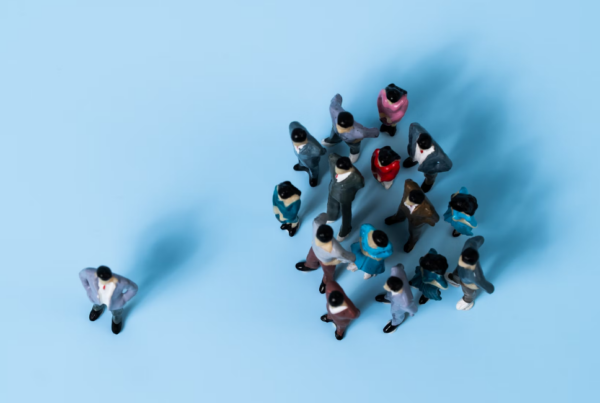
Einar, a 19-year-old Swedish rapper, was shot in April of last year. Other rappers were arrested for gun violence recently. Safety in Stockholm decreases as immigrant communities build rival gangs. Within these communities, they rap about their life of violence and dominance over women. Now, Sweden’s far-right anti-immigrant Swedish Democrat (SD) party has gained the most new support during the latest election. They blame gangster rap for violence in the communities and aim to ban it from radio play. I wonder – is this really the solution?
Einar, a 19-year-old Swedish rapper, was shot in April of last year. Other rappers were arrested for gun violence recently. Safety in Stockholm decreases as immigrant communities build rival gangs. Within these communities, they rap about their life of violence and dominance over women. Now, Sweden’s far-right anti-immigrant Swedish Democrat (SD) party has gained the most new support during the latest election. They blame gangster rap for violence in the communities and aim to ban it from radio play. I wonder – is this really the solution?

Photo by Pika Ivana Kostanjsek

Photo by Pika Ivana Kostanjsek
The lyricism and culture of rap has been in the hot seat for presumably causing violence and deviance. From its inception in the 90s, this subject has been covered in the music, such as in Ice-Cube’s parody song “Gangster Rap Made Me Do It”. Today, we even see it in political strategy, like the New York mayor’s attempts to ban a form of rap music called ‘drill’ as a measure to reduce violence. Research has found that we indeed tend to associate violence with rap, but not with other genres: When a lyrical passage was presented to a group of subjects as a country song, it was considered acceptable. When the same passage was presented as a rap song, it was considered dangerous and offensive. What is the reason for this? And why are Sweden nor New York banning country music, which also received criticism for having frequent misogynistic and racist content?
Psychological research has provided us insight as to why rap, but not other genres, is a scapegoat for societies’ issues. We associate rap with violence because the idea of rap primes the culturally negative stereotypes about black minorities. Rap has historically been black music, and black people are often perceived as being more violent than white people by Western societies. Unfortunately, rap music seems to have a reinforcing effect on this stereotype: In multiple studies, exposure to violent and misogynistic rap music strengthened the listeners’ mental association between black men and negative attributes such as criminality, but decreased their mental association between black men and positive attributes such as trustworthiness. No negative association of violence with white men was made, even if the rapper was white. It is therefore possible that the habit of scapegoating rap comes from a notion that black people are dangerous.
“Rap, with its minority communities, seems to be used as a scapegoat for the politicians and citizens who wish to point the finger, rather than doing the more difficult job of fixing institutional problems.”
After rapper Einar was shot dead last year, SD politician Goran Nordin wrote “It’s no victory to live like a Negro”. At that point, Nils’ killer was still unknown – including his race. It is easy yet misinformed to pinpoint minorities as the cause for violence because minorities are statistically more likely to be a part of lower income communities, where crime is more likely to be committed. Similarly, Sweden’s increasing violence in the music scene is an issue of a growing low-income population and a lack of integration of immigrants with different cultures. However, people instead make false links between violence and race when there is no causal relationship between the two. Rap, with its minority communities, seems to be used as a scapegoat for the politicians and citizens who wish to point the finger, rather than do the more difficult job of fixing institutional problems. If Sweden’s SD party wants to fight violence and criminal behaviors, fighting rap will only be a drop in the bucket.
Blaming minorities for society’s issues can be a strategy to popularize right-wing political aims such as anti-immigration policies. However, it can also be a cognitive bias, which is not consciously intended. People instinctively divide into ‘us’ versus ‘them’ based on race, and associate more negative traits with ‘them’ than ‘us’. Luckily, those who acknowledge their prejudices and consciously confront them can grow better at overcoming stereotyping and blaming those different from them for societal issues. I think that if Sweden’s politicians and citizens would acknowledge their racial biases which drive right-wing politics and affect thousands of minorities in their country, they could eventually move on to target violence at its root, where it will actually be effective. Moreover, they could view rap as an opportunity to reflect on how the system has failed these communities, and continues to fail them, rather than blaming it as the cause for the issues within them.<<
References
– Dunbar, A., Kubrin, C. E., & Scurich, N. (2016). The threatening nature of “rap” music. Psychology, Public Policy, and Law, 22(3), 280–292. https://doi.org/10.1037/law0000093
– Gee, A. (2022, February 14). The Problem With NYC Mayor Eric Adams’ War on Drill Rap. Complex. Retrieved September 30, 2022, from https://www.complex.com/music/problem-with-nyc-mayor-eric-adams-war-on-drill-rap/
– Howard, S., Hennes, E. P., & Sommers, S. R. (2020, July 16). Stereotype Threat Among Black Men Following Exposure to Rap Music. Social Psychological and Personality Science, 12(5), 719–730. https://doi.org/10.1177/1948550620936852
– Johnson, J. D., Trawalter, S., & Dovidio, J. F. (2000, May). Converging Interracial Consequences of Exposure to Violent Rap Music on Stereotypical Attributions of Blacks. Journal of Experimental Social Psychology, 36(3), 233–251. https://doi.org/10.1006/jesp.1999.1404
– Kingsley, T. (2022, April 28). Failed integration of immigrants is fueling gang violence and crime, Swedish PM says. The Independent. https://www.independent.co.uk/news/world/europe/sweden-failed-integration-immigrants-gang-violence-b2067626.html
– nytimes.com. (2022b, January 7). Retrieved September 30, 2022, from https://www.nytimes.com/2022/01/07/arts/music/einar-sweden-rap.html
– Rudman, L. A., & Lee, M. R. (2002, April). Implicit and Explicit Consequences of Exposure to Violent and Misogynous Rap Music. Group Processes &Amp; Intergroup Relations, 5(2), 133–150. https://doi.org/10.1177/1368430202005002541
– SD: Investigate ban on gangster rap on Swedish radio. (2021, October 29). Teller Report. Retrieved September 30, 2022, from https://www.tellerreport.com/life/2021-10-29-sd–investigate-ban-on-gangster-rap-on-swedish-radio.SyW5T2LKIF.html
– Swedish far-right politicians exposed for wanting to “eradicate” Muslims, paying tribute to Nazis. (2022). https://www.aa.com.tr/en/europe/swedish-far-right-politicians-exposed-for-wanting-to-eradicate-muslims-paying-tribute-to-nazis/2680776
– Vozick-Levinson, S. (2022, February 11). Rolling Stone. Rolling Stone. https://www.rollingstone.com/music/music-news/mayor-eric-adams-drill-rap-1299108/
The lyricism and culture of rap has been in the hot seat for presumably causing violence and deviance. From its inception in the 90s, this subject has been covered in the music, such as in Ice-Cube’s parody song “Gangster Rap Made Me Do It”. Today, we even see it in political strategy, like the New York mayor’s attempts to ban a form of rap music called ‘drill’ as a measure to reduce violence. Research has found that we indeed tend to associate violence with rap, but not with other genres: When a lyrical passage was presented to a group of subjects as a country song, it was considered acceptable. When the same passage was presented as a rap song, it was considered dangerous and offensive. What is the reason for this? And why are Sweden nor New York banning country music, which also received criticism for having frequent misogynistic and racist content?
Psychological research has provided us insight as to why rap, but not other genres, is a scapegoat for societies’ issues. We associate rap with violence because the idea of rap primes the culturally negative stereotypes about black minorities. Rap has historically been black music, and black people are often perceived as being more violent than white people by Western societies. Unfortunately, rap music seems to have a reinforcing effect on this stereotype: In multiple studies, exposure to violent and misogynistic rap music strengthened the listeners’ mental association between black men and negative attributes such as criminality, but decreased their mental association between black men and positive attributes such as trustworthiness. No negative association of violence with white men was made, even if the rapper was white. It is therefore possible that the habit of scapegoating rap comes from a notion that black people are dangerous.
“Rap, with its minority communities, seems to be used as a scapegoat for the politicians and citizens who wish to point the finger, rather than doing the more difficult job of fixing institutional problems.”
After rapper Einar was shot dead last year, SD politician Goran Nordin wrote “It’s no victory to live like a Negro”. At that point, Nils’ killer was still unknown – including his race. It is easy yet misinformed to pinpoint minorities as the cause for violence because minorities are statistically more likely to be a part of lower income communities, where crime is more likely to be committed. Similarly, Sweden’s increasing violence in the music scene is an issue of a growing low-income population and a lack of integration of immigrants with different cultures. However, people instead make false links between violence and race when there is no causal relationship between the two. Rap, with its minority communities, seems to be used as a scapegoat for the politicians and citizens who wish to point the finger, rather than do the more difficult job of fixing institutional problems. If Sweden’s SD party wants to fight violence and criminal behaviors, fighting rap will only be a drop in the bucket.
Blaming minorities for society’s issues can be a strategy to popularize right-wing political aims such as anti-immigration policies. However, it can also be a cognitive bias, which is not consciously intended. People instinctively divide into ‘us’ versus ‘them’ based on race, and associate more negative traits with ‘them’ than ‘us’. Luckily, those who acknowledge their prejudices and consciously confront them can grow better at overcoming stereotyping and blaming those different from them for societal issues. I think that if Sweden’s politicians and citizens would acknowledge their racial biases which drive right-wing politics and affect thousands of minorities in their country, they could eventually move on to target violence at its root, where it will actually be effective. Moreover, they could view rap as an opportunity to reflect on how the system has failed these communities, and continues to fail them, rather than blaming it as the cause for the issues within them.<<



